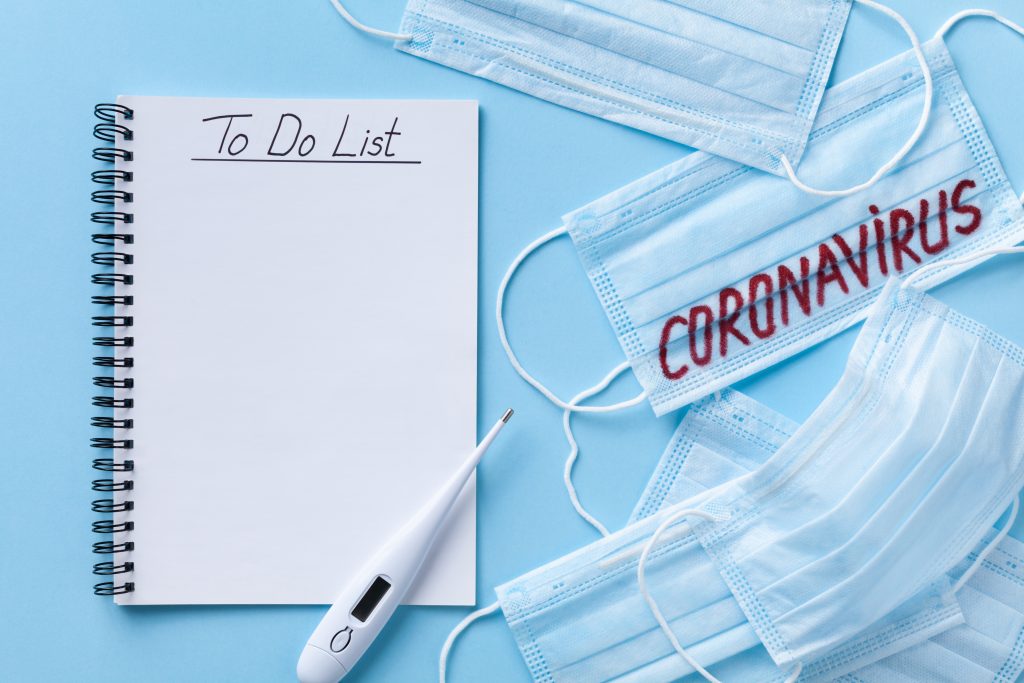If you are like most people, the past few weeks have been wrenching and uncertain. The United States, indeed the world, has been overwhelmed by a virus that has taken virtually everyone by surprise. The Coronavirus has changed our lives and forced us to take extreme precautions to avoid getting sick. We have been charged with indefinitely isolating ourselves from others and washing our hands and practicing self-hygiene to the extreme. (Did anyone else realize how hard it was not to touch your face?)
However, despite these temporary drastic measures, what if—in spite of everything—you come down with the Coronavirus. What then? What should you do? The following is a critical list of actions one must take if you have any suspicion whatsoever that you have contracted the virus.
(NOTE: always refer to trusted, vetted sources and experts like the CDC if you have questions or concerns about the Coronavirus.)
Critical Actions To Take If You Have Symptoms of the Coronavirus
First and foremost, it’s important to know the symptoms: cough, fever, or difficulty breathing. If you have any or all of these symptoms, do not take chances—with your health, or with those around you. Here are the steps to take by the CDC and others.
Stay At Home! And Call your Doctor
Unless you are extremely sick and have trouble breathing, stay isolated so you do not spread the virus—and so that you are not exposed to the virus if in fact you do not have it. And call a healthcare provider who you know and trust. If your symptoms get worse, call a doctor or clinic before you go to their office and describe your symptoms.
Stay Away from Others
This is key. As many now realize, the Coronavirus is extremely contagious—much more so than the flu. You need to separate yourself from others, that includes family, friends, and strangers. Make a “sick room” or “isolation” room in your house—and if possible, make it a fun room: tv, music, books, and good wi-fi! The important thing is to distance yourself from other people. And if you are a parent of young children, that means stay away from them too.
Call the Healthcare Provider before you Visit
If you have scheduled medical or dental appointments be sure to call them in advance and let them know your symptoms and that you’re concerned you might have Coronavirus. It’s important not to put other patients or healthcare providers at risk.
Practice Hand Hygiene and Respiratory Caution
The quickest way to transmit the Coronavirus is through touch or coughing/sneezing on someone or on food and surfaces. As we said, this virus is highly contagious. Wash your hands with soap often—for at least 20 seconds, especially after coughing or sneezing. Try to cough or sneeze into your elbow, not your hands. Be sure to wipe down surfaces in the house: counters, plates, cups, computers, appliances, utensils, remote controls, etc.
Avoid Sharing Household Items
Even if you don’t have symptoms, it is important not to cross-contaminate by sharing common items in the house. Do not share dishes, drinking glasses, cups, eating utensils, towels, or bedding with other people in your home. Wash clothes frequently. And don’t throw the football or baseball—they can carry the virus, as well.
Clean High-Touch Surfaces
This is one of the most common ways to pass along the virus. Counters, door knobs, chairs, tables, remotes, keyboards, toilets, fixtures, all of these can carry the Coronavirus, which may linger for hours or even days. Try to use a separate bathroom if you have symptoms. Household disinfectants work well, especially disposable sanitary wipes.
Most importantly, stay calm. Don’t panic.
If you have symptoms, call your doctor or 911 if it is an emergency. If you do develop emergency warning signs for COVID-19 get medical attention immediately.
Emergency warning signs include:
- Difficulty breathing or shortness of breath
- Persistent pain or pressure in the chest
- New confusion or inability to arouse
- Bluish lips or face
- High temperature
NOTE: This list is not all-inclusive. Don’t hesitate to call the doctor when in doubt.

